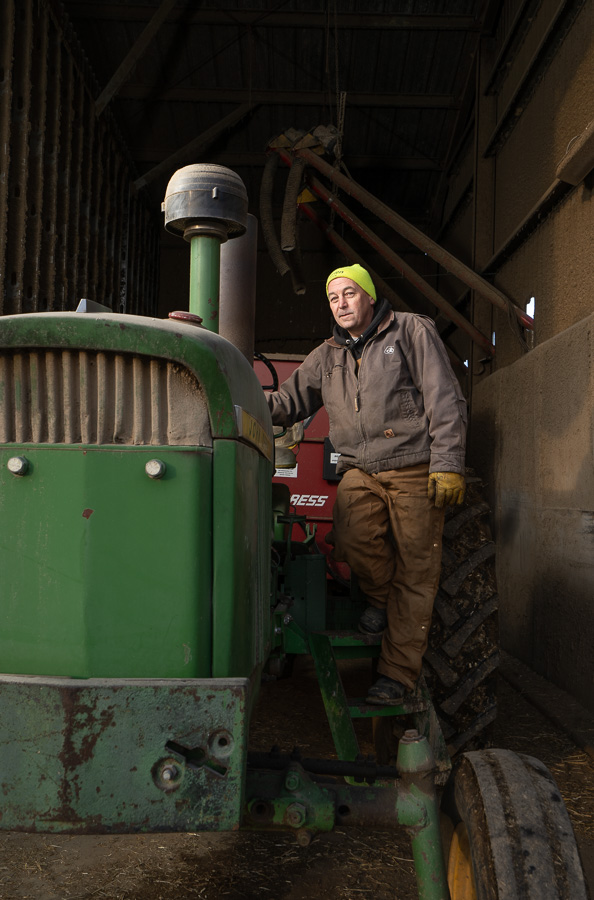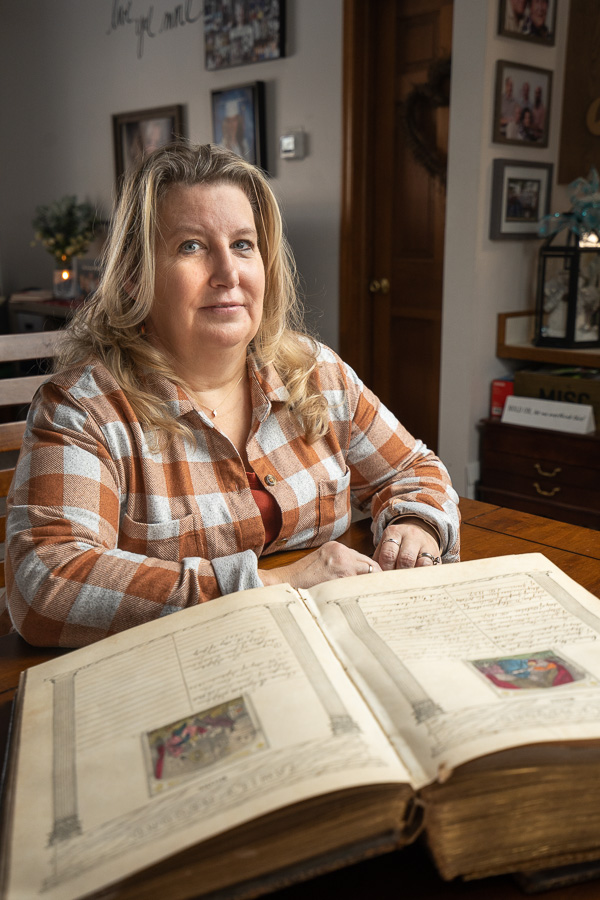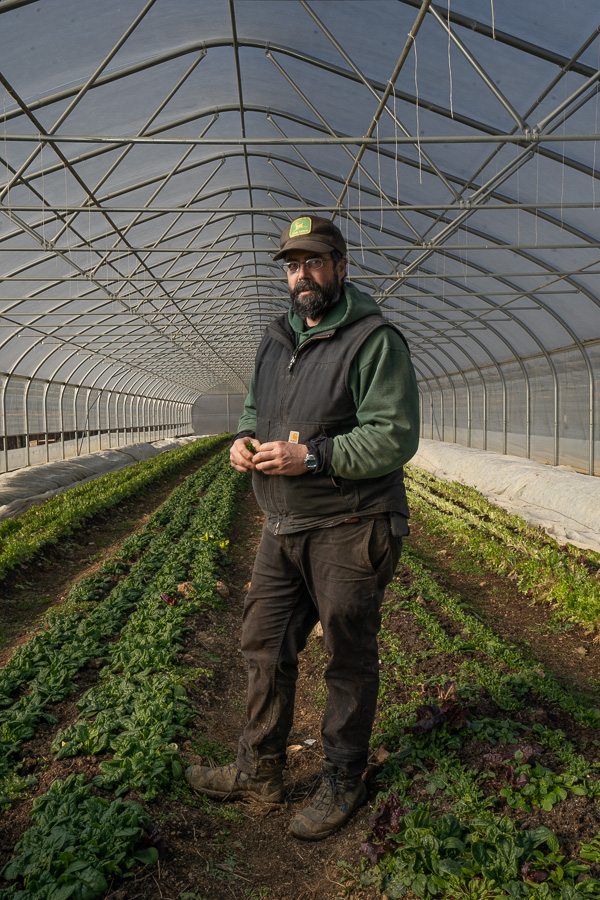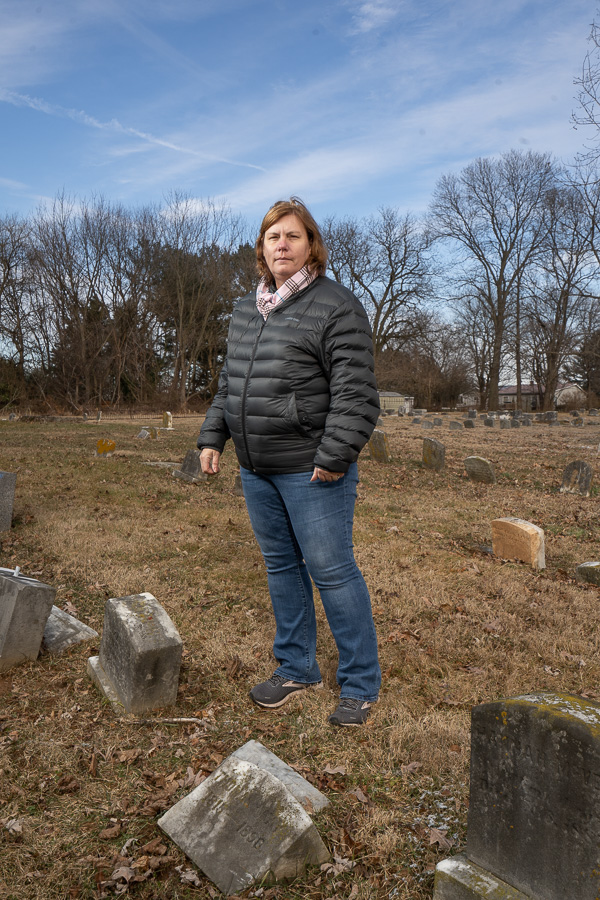Farmer Portraits for the Cecil Land Trust
The Cecil Land Trust works with a diverse community of farmers who contribute unique roles in agriculture to Cecil County. From Horses to Satellites, these farmers are ensuring the health of the region through sustainable practices and products.
Aaron Haines on his tractor after feeding the cows
Early memories of the Quaker Haines was how they spoke to each other using the gender neutral thee and thou. Aaron, like his grandfather Alfred, and father Bill, is very active outside of the family’s farming operation. For many years he has played a leading role in Rising Sun’s Community Fire Company responding to as many calls as he can. Albeck Farms, the family’s farming operation, farms in Lots 25, 26, and 27.
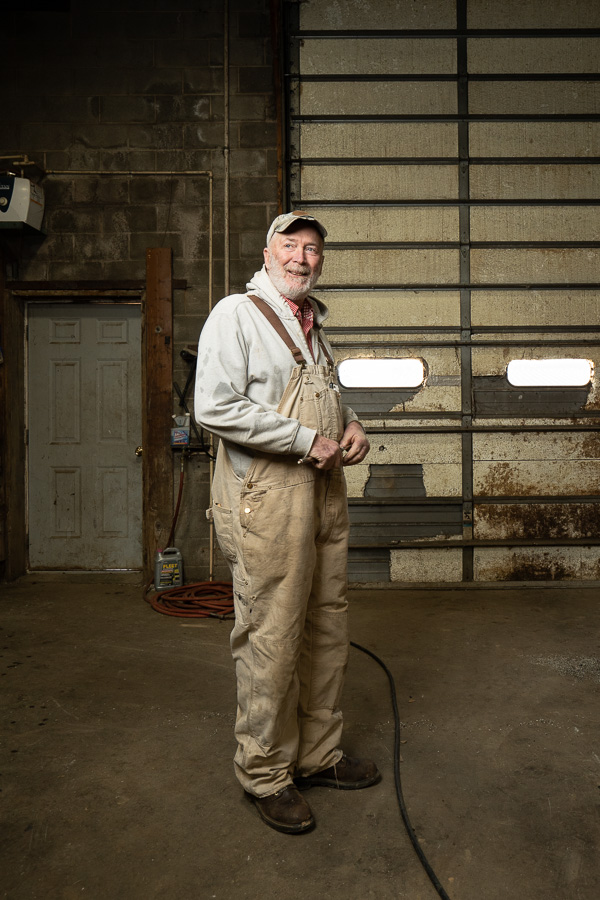
Jay Tosh working on equipment
When you look back on the past 300 years of the agrarian society in the Nottingham Lots, the family-name Tosh stands out. The Tosh’s were active in public life, signing a petition for the freeing of the Parker sisters, serving as road commissioners, and jury heads. Jay Tosh is one of the most visible farmers in the Lots. Anyone driving on rt.276 or rt.273 at Harrisville Crossroad Circle can see Jay making hay in the summer, or selling it in the winter. This visibility is a great asset to farmers and the public in the Nottingham Lots; it reminds us that an agrarian way of life is still sustainable after 300 years. Jay farms in Lots 20 and 5.
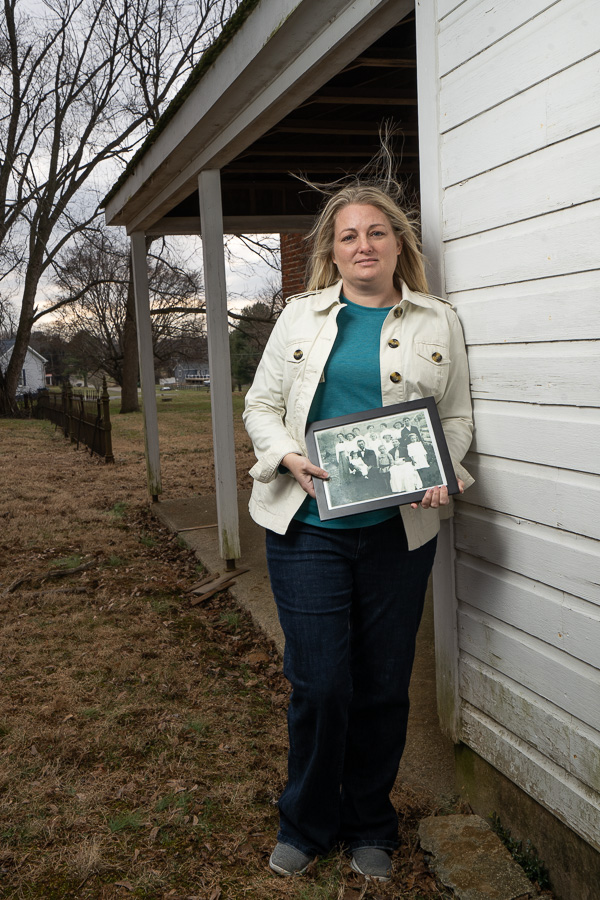
Cecil County Farming and Agriculture
Video Projects
From Horses to Satellites
#Cecilgrown
Eyler Farmstead
Ecologica Design Learn more →

Little Bean is a video production studio that creates cinematic narratives, voice overs, original music, and infographic animations for digital marketing.
CONTACT
All work Copyright © Little Bean, LLC

